How To Draw A War Zone
Shadow of War Is at War with Itself
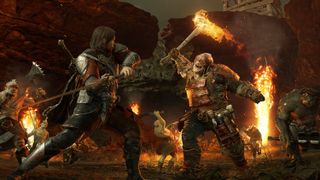
After playing Middle-earth: Shadow of War for a week, I don't have many definitive things to say about the game. That's OK, because Shadow of War doesn't have many definitive things to say about itself, either.
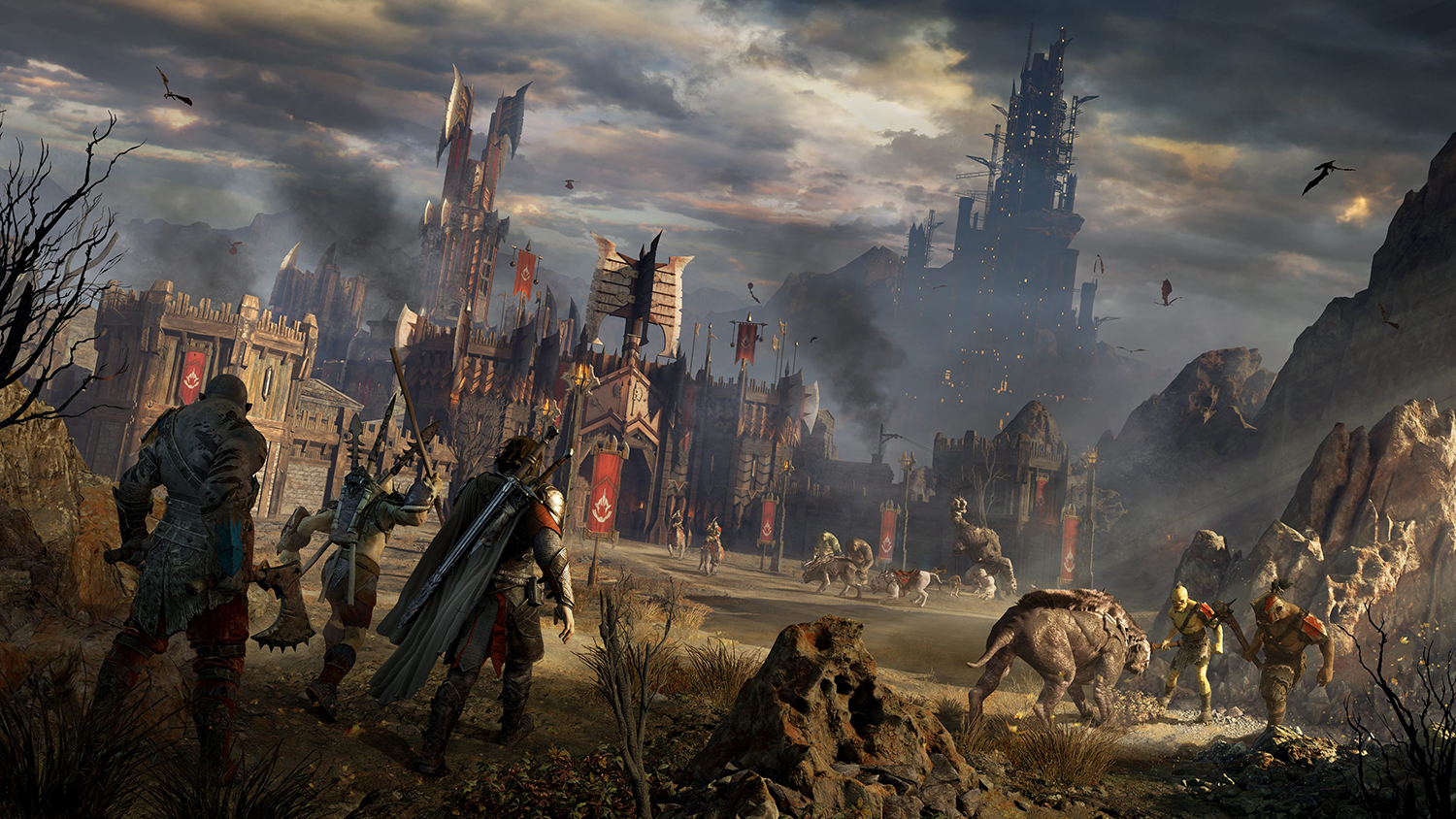
It's an open-world adventure that's constantly telling you where to go and what to do. It lets you customize your character by improving your skills and items at a fairly fixed rate. It's a deep dive into Tolkien's mythology, which is all just window dressing to cover up a lifeless plot.
And then there are the loot boxes, which are just as much of a problem as you feared.
If I'm supposed to have strong feelings one way or another about Shadow of War, I don't know what they're supposed to be, or what would engender them. The game is actually quite remarkable in that way. It combines tight combat, inspired art design and innovative game mechanics in a way that would make most other big-budget narrative titles jealous, but it doesn't seem to have a focus that ties them all together. The game is a hugely impressive body with very little heart.
In short: It's the kind of game that you can (and probably will) play for dozens of hours if you want to see everything but will scarcely remember a few months down the line.
Lore of the Rings
I'm actually quite surprised that Shadow of War has elicited such a big shrug from me so far. I was absolutely hooked on Shadow of Mordor back when it first came out, even though I was the last person anyone expected to be.
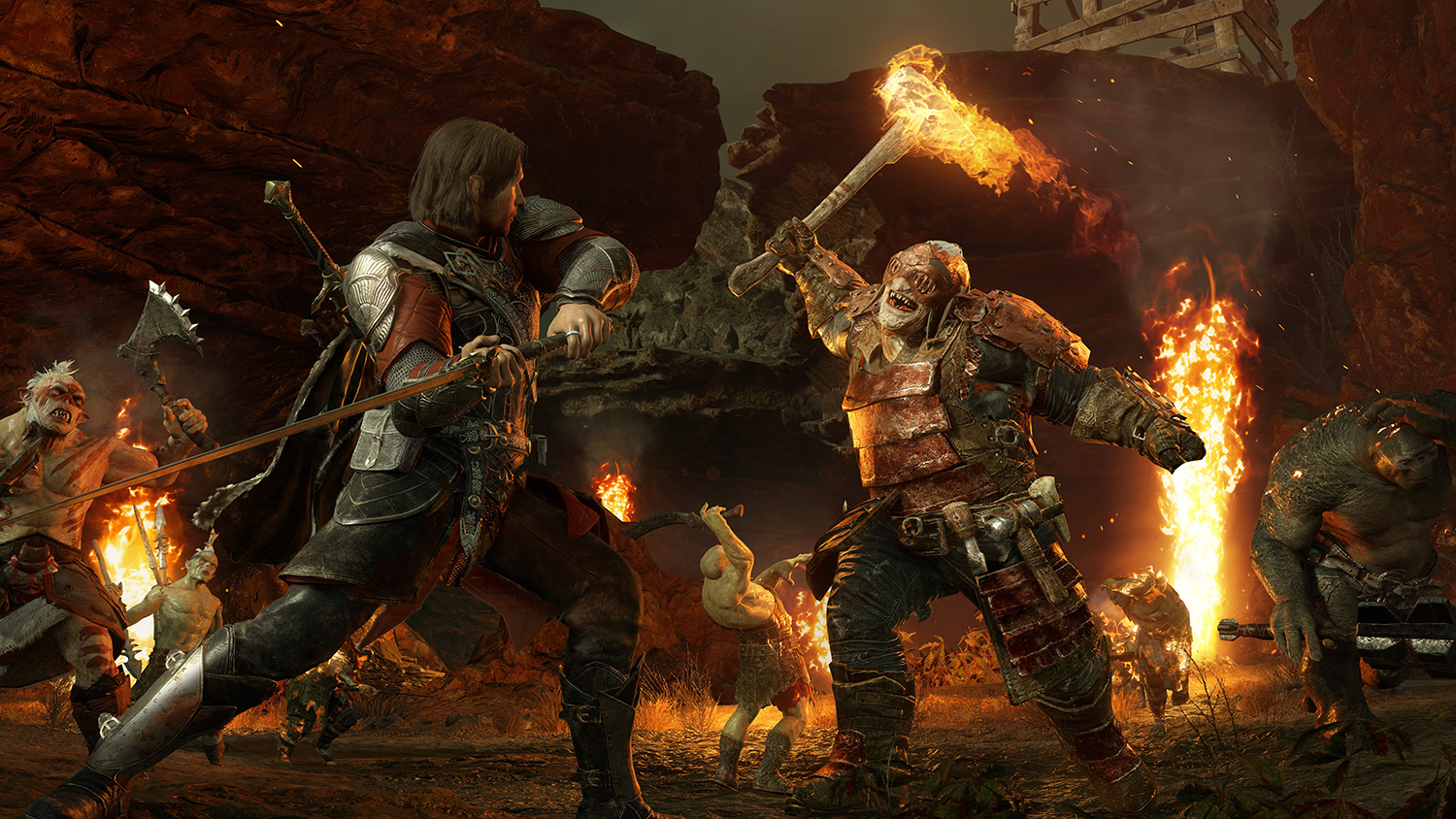
I'm a Tolkien purist. I despise Peter Jackson's spectacle-driven action extravaganza LOTR films. I've read The Silmarillion twice. I can tell you the difference between elves who speak Quenya and elves who speak Sindarin — and why it matters. An open-world action game with vengeance and bloodthirst as its central themes sounded like exactly the kind of thing Tolkien would have hated.
Shadow of Mordor wasn't exactly a simple game, but Shadow of War seems needlessly complicated.
Well, Tolkien probably wouldn't have liked Shadow of Mordor — but I did. The designers clearly knew as much about Middle-earth as I do (probably more), and Talion's noncanonical story arc was a deliberate subversion of the lessons learned in LOTR. It was a cautionary tale more than a celebration of fell powers, and the details present in side quests and offhand remarks made it clear that the developers of Shadow of Mordor knew exactly where the game was celebrating Tolkien's mythos and where it was turning that mythos on its head.
In Shadow of War, I'm not so sure about the designers' intentions. Talion's personal vendetta is done; now he wants to take the fight directly to Sauron himself. This is problematic for a number of reasons (for one thing, Sauron isn't a corporeal foe who can be fought by traditional means), but mostly, it's just boring.
Talion was a bit generic in Shadow of Mordor, but at least the stakes of the conflict were very clear. The Black Hand of Sauron killed his family. Celebrimbor's dark impulses mirrored his own. Together, they used skullduggery and deceit to turn the orcs against themselves — and against the Black Hand. Talion defeated the Black Hand, and his victory was hollow, because Sauron was still out there. As vengeance narratives go, it's not a bad one at all.
Picking up right where Shadow of Mordor left off is fine from a game-design perspective, but it doesn't really make any thematic sense. Where are the personal stakes? Why does Talion immediately team up with the forces of Gondor, if he's become such an abomination — and why didn't he do it earlier?
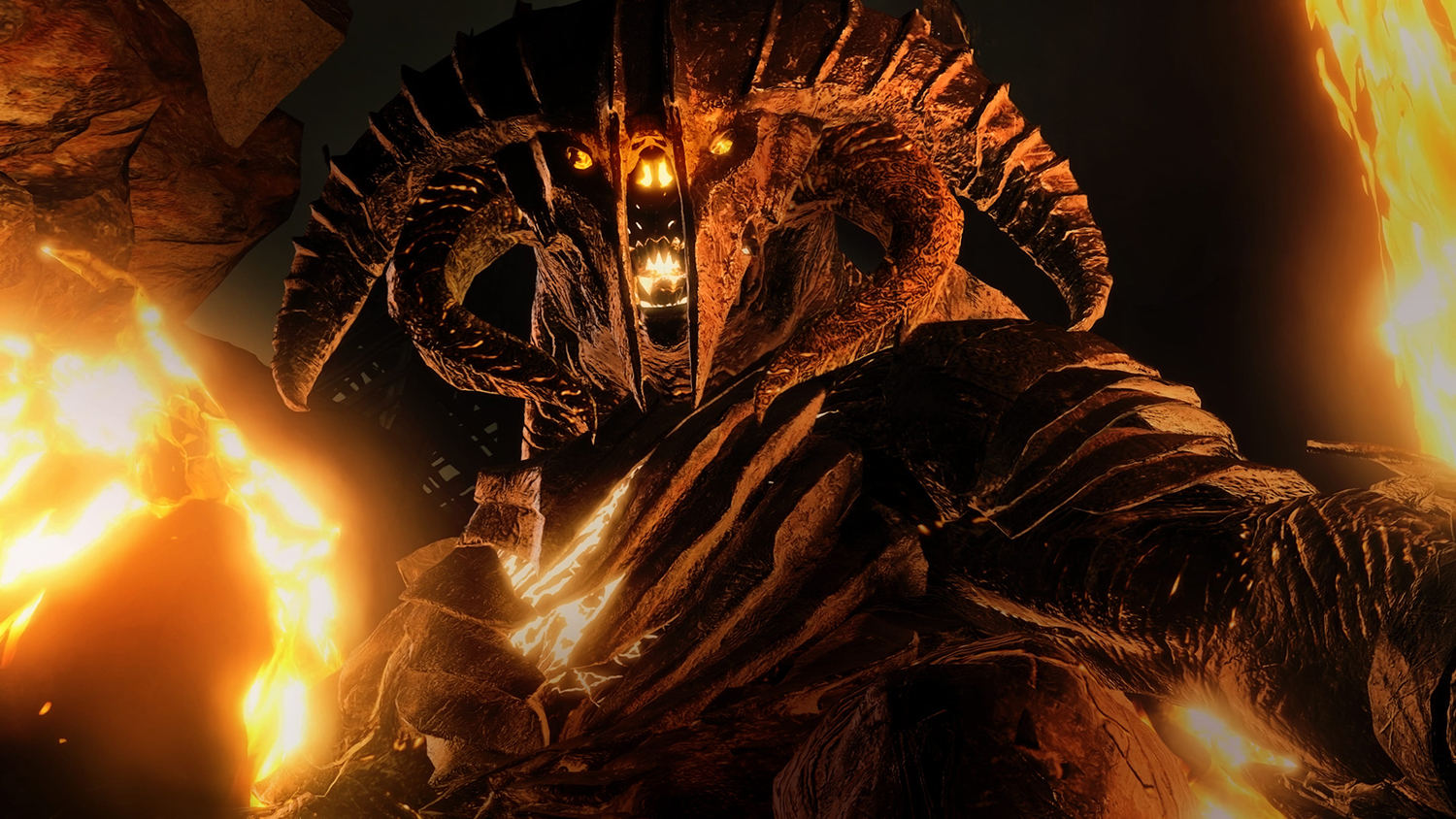
Talion doesn't seem to have a character arc at all. He just goes where the plot takes him, recruiting more allies and getting closer to defeating Sauron. The distinctive look, feel and lore of Middle-earth don't play important roles in the story.
Even the orcs — who are charismatic, distinctive and memorable, thanks to the Nemesis System (one of the few things in Shadow of War that's even better than before) — don't feel like the ones we encountered in Tolkien's books. Yes, they're vulgar and petty, but they can also be cunning, thoughtful or even noble, depending on which ones you encounter. I understand why Monolith would want to make the orcs more than just disposable soldiers; Middle-earth isn't Warcraft. The orcs don't have a three-dimensional society full of heroes and villains — and as far as Lord of the Rings was concerned, they never needed one. They are simply corrupted elves — all of the beauty, strength and longevity of Tolkien's most beautiful race, reflected in a dark mirror.
MORE: Here Are the Best PC Game Controllers
Shadow of More
At least Shadow of War's gameplay is rock-solid. Just like in the first game, you'll experience fast-paced combat with large groups of orcs, simple platforming, a bit of well-executed stealth and difficult boss fights that require some environmental puzzle solving. I have no complaints about the moment-to-moment gameplay. The controls feel intuitive, and the variety of enemies you fight keeps things fresh from start to finish.
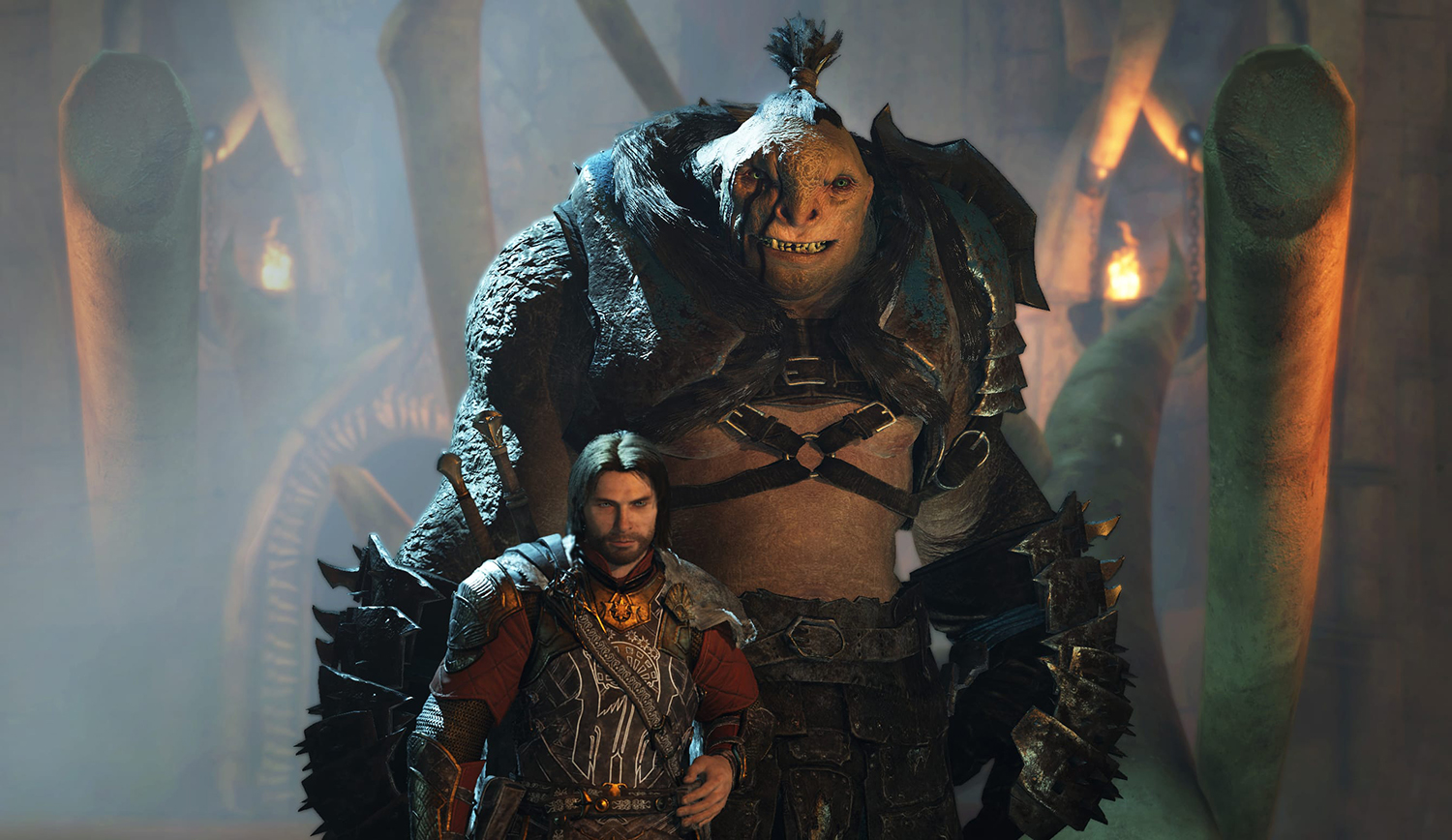
What gives me pause is that the underlying systems in the game are much more complex than before, without much corresponding reward. In Shadow of Mordor, you could upgrade Talion's skills by earning experience points. You could earn extra experience points through side quests. Fair enough.
Talion doesn't seem to have a character arc at all.
Now, you need to worry about equipment (both weapons and armor), socketable gems in said equipment, in-game currency, premium currency, loot boxes, experience boosts and upgrades for your orcish followers — in addition to experience points and skill points, of course. It would take too much time to go into what each one of these things does, but to master the game, you do need to learn each one of these systems inside and out. Shadow of Mordor wasn't exactly a simple game, but Shadow of War seems needlessly complicated.
More complexity in games isn't a bad thing (hello, Dwarf Fortress), but to indulge in a little Game Design 101 digression, complexity and reward are supposed to go hand in hand. Fighting off hordes of orcs is satisfying in Shadow of War, sure — but I don't know if it's any more satisfying with a slightly more powerful sword and a socketed gem. The payoff in building up Talion feels similar to Shadow of Mordor, but with a lot more steps in between.
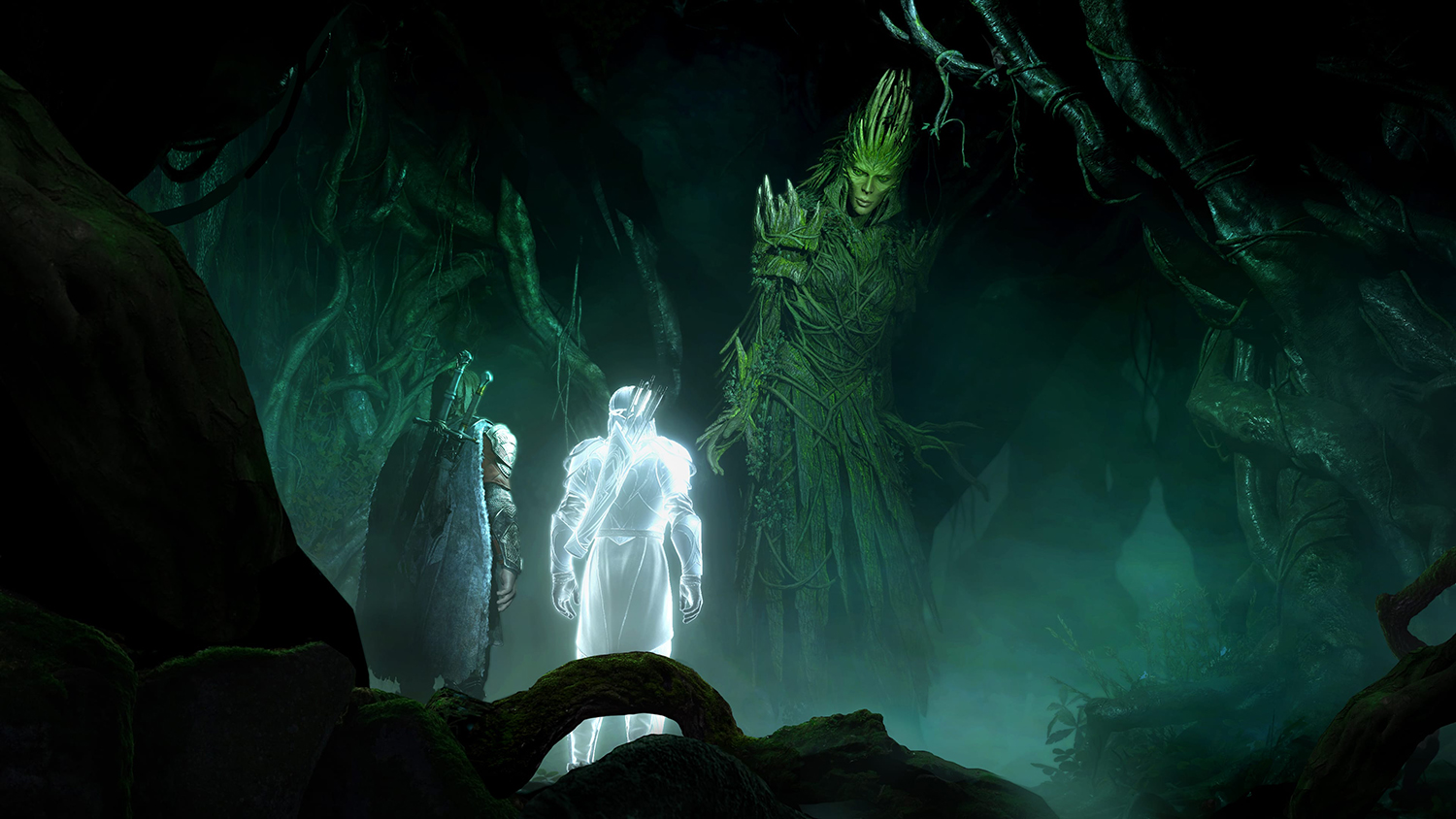
And then there's the issue of loot boxes. It seems that every gaming site has a hot take on why loot boxes are absolutely toxic in a single-player adventure like Shadow of War, and as far as I can tell, every single one of them is correct.
Briefly: In the normal course of gameplay, you collect weapons, armor and orcish followers from doing quests and defeating enemies around the open world. The quicker way to acquire them, however, is to buy loot boxes of varying rarity, with either tons of difficult-to-acquire in-game currency, or a relatively modest amount of real-world dollars.
I started exploring the world, conquering my Nemeses and basically ignoring the main campaign as much as possible. Suddenly, I was having fun again.
You can ignore the loot boxes for the most part during the main campaign, but later on, they're simply the most efficient way to gather the items and followers needed to complete some of the postgame quests. The game didn't have to be designed this way — but it was. The fact that you don't explicitly need to spend money is not an excuse for making the loot-box system such a visible, almost necessary part of gameplay. Shadow of War would simply be better without them.
The biggest issue with the gameplay, though, is the same one that plagued Shadow of Mordor. The Nemesis System procedurally generates orc captains with unique personalities, appearances and battle characteristics. Finding information on the captains, exploiting their weaknesses and seeing how the ranks evolve over time are easily the most interesting aspects of the game. And yet, the main campaign rarely leverages your unique Nemesis interactions, forcing you to fight scripted foes and explore constrained areas instead. At best, it's jarring; at worst, it's like playing two separate games.
MORE: The Best Headsets for Immersive Gaming
Warring opinions
After my first few hours with Shadow of War, I was ready to put it down. The gameplay systems were confusing, the story was going nowhere and I could already see how the late-game grind for loot boxes was going to be a pain in the butt. After another few hours, though, something funny happened: I started exploring the world, conquering my Nemeses and basically ignoring the main campaign as much as possible. Suddenly, I was having fun again.
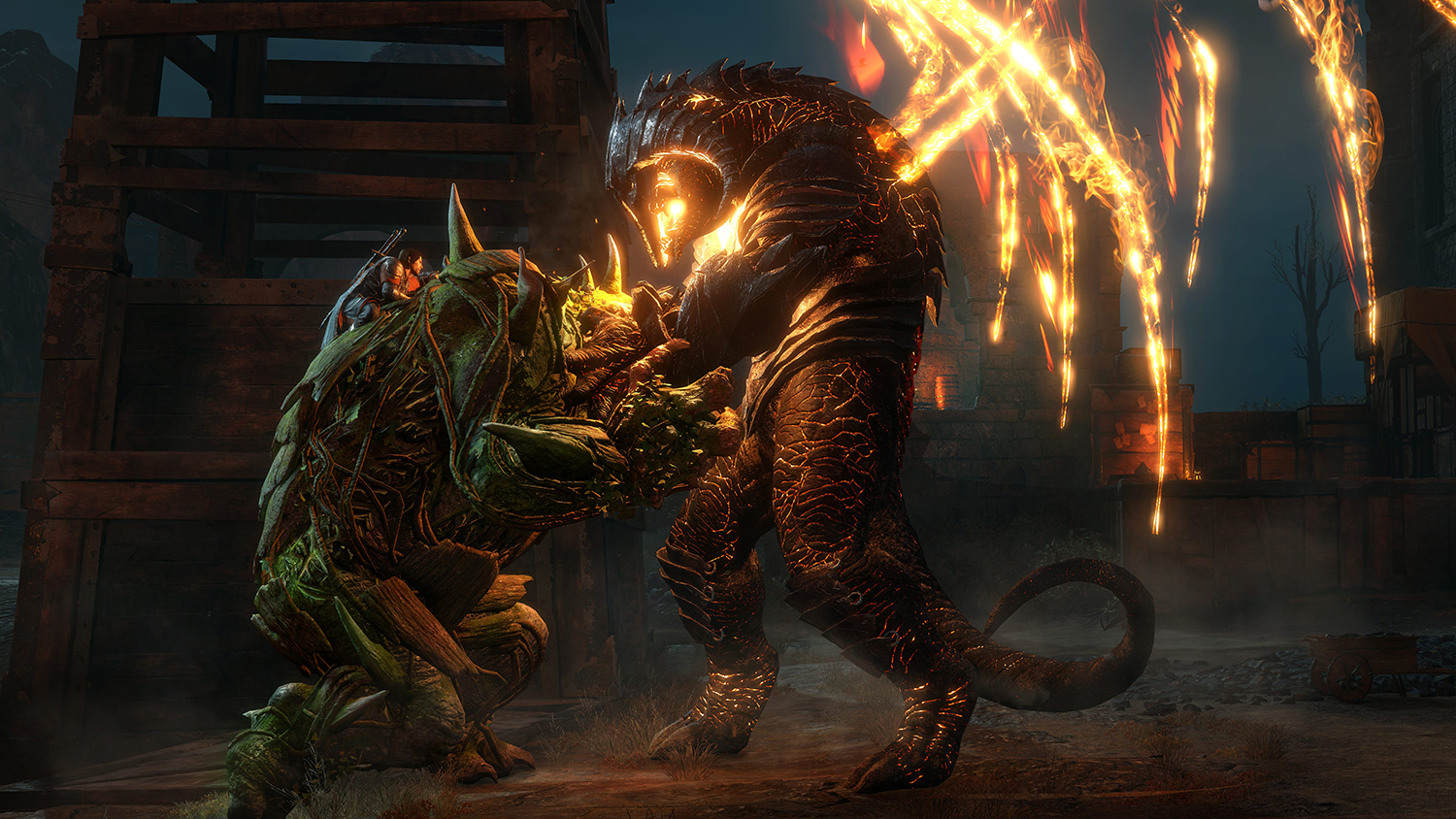
The problem, of course, is that the Nemesis System, while technically impressive and mechanically novel, is not enough to carry an entire game. There will come a point where I'll have to decide whether I'm really invested in Shadow of War's story, and how much tedium I'm willing to endure in order to see it through.
Until then, I see why some people are enjoying the game so much, and why others are finding it so frustrating. I guess the closest point of comparison would be Ralph Bakshi's animated Lord of the Rings film from 1978: Sometimes, it's a hot mess, and sometimes, it gets the source material just right. The question is, how many rotoscoped orcs are you willing to sit through, just for a chance to see that amazing scene with Galadriel?
Credit: Monolith Productions

Marshall Honorof is a senior editor for Tom's Guide, overseeing the site's coverage of gaming hardware and software. He comes from a science writing background, having studied paleomammalogy, biological anthropology, and the history of science and technology. After hours, you can find him practicing taekwondo or doing deep dives on classic sci-fi.
How To Draw A War Zone
Source: https://www.tomsguide.com/uk/us/shadow-of-war,review-4768.html
Posted by: aleshirehadly1981.blogspot.com

0 Response to "How To Draw A War Zone"
Post a Comment